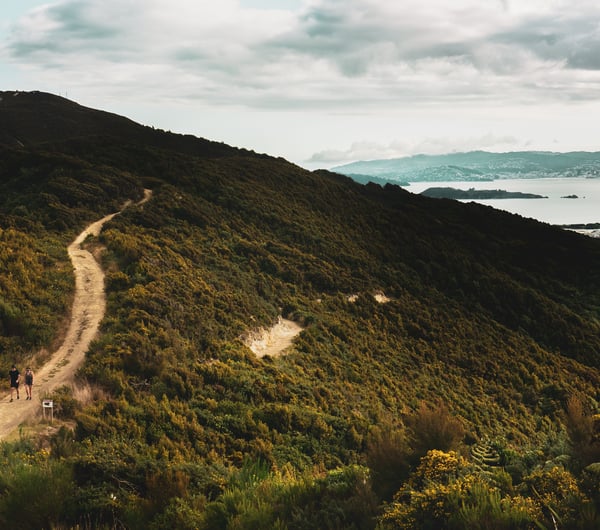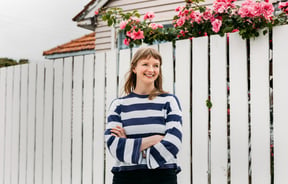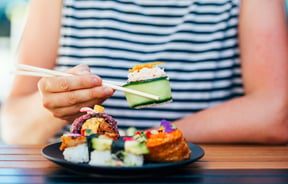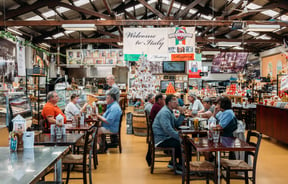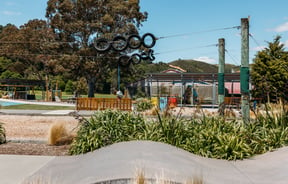In the Kitchen with David Lee: The Man Behind New Zealand’s Top Eateries
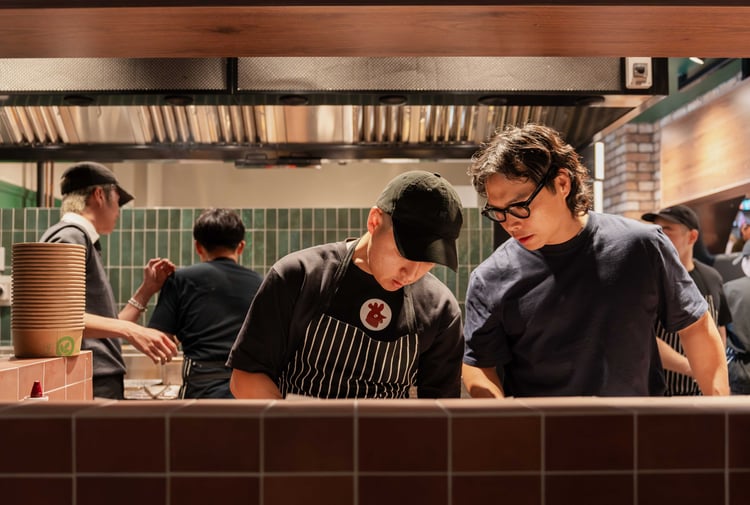
In the heart of Wellington's new lively dining and entertainment district, Willis Lane, is the latest masterpiece from award-winning restauranter David Lee (of Aigo, Pōni, Candyshop and Gochu fame): a humble, softly-spoken man responsible for shaping Auckland's dining scene.
Let us introduce you to his newest venture: Crack Chicken.
Interview by: Katherine Dewar
Before our interview, I spy him oscillating between furiously working in the kitchen alongside his team to quietly observing from across the lane, absorbing every detail.
Join us as we discuss his dedication to excellence and the heartfelt connection to his Korean heritage that fuels his creative and culinary vision.
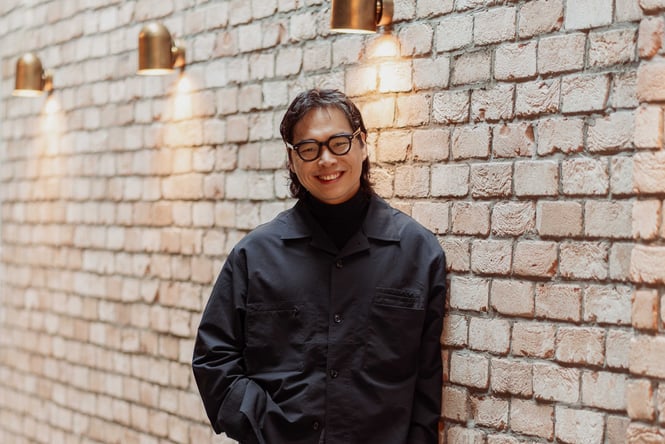
Tell me how Crack Chicken came to be.
I've been in the restaurant business for the last decade. It's getting harder - the margins are getting thinner and thinner. It's just becoming tough to survive.
So I started planning a new, different concept. Small team, fast service - and simple, great food. That was the start of Crack Chicken.
You are a more than well-established dining maestro of Auckland - founding several of the top award-winning eateries in the city. What feels different about the Wellington hospitality scene?
I've always wanted to open something in Wellington because of how passionate people are about food here. Take Welly on a Plate. It's actually quite incredible how involved and excited people get. I see it on Instagram - people eating three or more burgers a day. You don't see any other city getting amongst a food event like that.
Is that why Willis Lane appealed to you?
At the time, I had several different opportunities around Auckland - commercial developments similar to Willis Lane.
But I didn't want to. I had a gut feeling that the first Crack Chicken needed to be Wellington - and that Wellington people would like the concept.
Well, we're very lucky to have it here - and if the last few days are anything to go by, I'd say they are loving it.
Yeah. I was overwhelmed. People are loving it. It’s just a simple concept done well. Just good chicken, you know. Good burgers.
Korean flavour is a big trend internationally. Here have Chinese, Japanese and Vietnamese food everywhere. But New Zealand is behind with Korean cuisine.
I found a few really good Korean restaurants here in Wellington. But not enough. So I’ve always felt this responsibility to represent Korean cuisine well - and authentically.
Speaking of which - you clearly have a talent for putting an innovative spin on classic, time-honoured dishes - like fried chicken. What makes Crack Chicken different?
As we were creating the menu, I was pretty torn between doing Korean or Nashville-style fried chicken. It might come as a surprise, but I actually gravitate towards the Nashville chicken more [laughs] - probably because I've eaten so much of the Korean style over the years.
Eventually, the team and I decided to do both, because - why not? I'm slowly realising that just because I am South Korean, that doesn’t mean I have to restrict myself to cooking exclusively Korean food.
Crack Chicken is basically everything I like, all in one place.
Is there a particular Korean dish that reminds you of your childhood?
If you’ve tried our Yum Yum Chicken - you’ll be familiar with that sweet and spicy Korean sauce. It needs to be done well, but it's not supposed to be sophisticated. It's a very casual street food that you can have every day.
Yeah, that was my childhood. That’s what we’re doing at Crack Chicken.
I was there ordering food the day after opening and saw you furiously working in the kitchen alongside your team. Is it important to you to play a hands-on role in your projects?
[Laughs] It depends. I try not to, to be honest. But I genuinely love doing what we do, especially that initial stage of setting up a business with a team.
I like getting physically involved, not just acting as the brain that designs the menus. You have to understand - that’s hospitality. It’s all about what’s happening on the ground - the team, how they work together. And I know how difficult it is, especially when we’re busy.
So when Willis Lane opened, and the crowds came, I saw my team struggling to keep up. I had to jump on! I wanted to make sure they knew I wasn’t just there for show - I wanted them to feel supported. I wanted to be there beside them, saying, ‘Hey, don’t be panicked. You guys are doing a great job.’
So it wasn’t my plan to be in the kitchen. It just worked out that way!
I read that you used to wash dishes at a restaurant for free, so you could watch the chef cook and learn more about the hospitality industry. How has that experience shaped your work ethic and approach to your restaurants?
Yeah, I did that. That's how I started my business - because I had no real background at that point. I didn't study cooking or hospitality and had no money to start my business. But I was crazy about hospitality - that’s all I wanted to do.
I had no other option. I had to jump into the kitchen and learn as much as I could.
That was my very first step into hospitality. It was 15 years ago, but I still remember those hard times very clearly. Those memories help me - particularly when interacting with my staff, especially the ones working in the kitchen. It helps me understand how they feel. They are working hard. You see, that environment is tough. It’s hot, and it’s a lot of pressure.
You need to have a good understanding of that to run a team - and to take care of them.
That was more than a decade ago, and they were very hard times, but I look back and think - that was a blessing in many ways.
Do you have any advice for the next generation of chefs, especially those who might be facing similar obstacles?
Yeah, work hard. Don’t avoid hard work - because, you know, that's my pride. I don't think I'm a brilliant businessperson. I'm not that smart. I'm just hard-working.
Just work hard, wake up early and keep learning from other chefs. I'm still always studying and researching every day and night. Literally.
I’m always going out for dinner to see who's doing what - is there anything I can learn? Trying to spot new trends. And when I have money or time, I always travel.
When you're going out and looking for inspiration, where do you go?
I go everywhere. The big places and the small ones. You can learn just as much from both.
Sometimes I intentionally visit places that are not doing well - I’ll sit down, look around and ask myself: what’s not working? If I was the owner, how could I make it better? Does it need better music, better lighting, better service? Then I write it all down.
That’s the key. You can never stop learning.
When you get home after a long day, you’re tired and hungry - what do you make for yourself and your family? Do you have an easy, go-to comfort dish?
I do. I like home cooking. I love my wife's Korean kimchi stew - with Korean barbecue pork belly. Plus, a bit of soju. That's my soul food. Delicious.
I have two kids, too. Twelve and ten-year-old boys. They are crazy eaters and fussy, just like their Dad. [Laughs]
Do they think their Dad is a good cook?
Yeah, but they are honest with me!
I do a lot of experimenting at home - testing new flavours and styles. I’ll try it out on my kids and ask them, ‘What do you think of this?’
They are Korean, but they were born and raised here. So I try my best to make them like Korean food, which is really important for me. That’s our heritage. That’s everything.
Neat Wellington Places
Humble & Grand
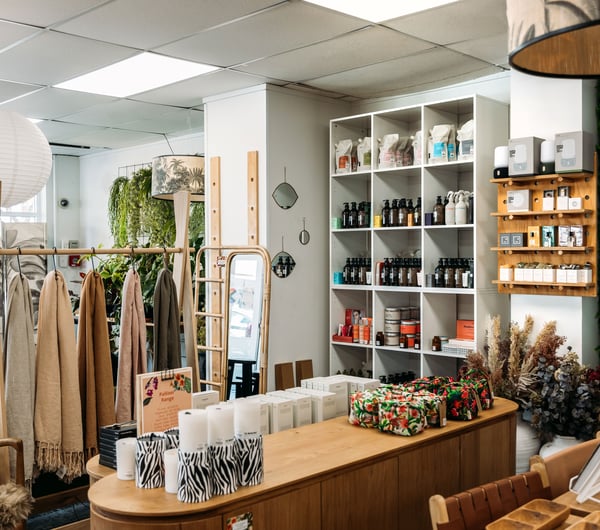
Making its home in Upper Hutt is Humble & Grand, a homeware store stocking an assortment of contemporary and classic goodies.
Untouched World
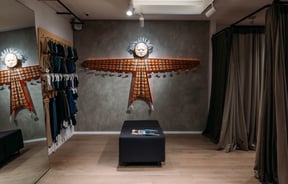
If there’s one clothing store that really understands sustainability, it’s Untouched World. The first and only lifestyle fashion company in the world to be recognised by the United Nations for sustainability, Untouched World gets things right from the get-go.
Dreamscape Glamping
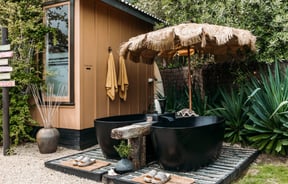
Perched on a hill overlooking Waikanae and the Kāpiti Island, a unique accommodation experience awaits.
